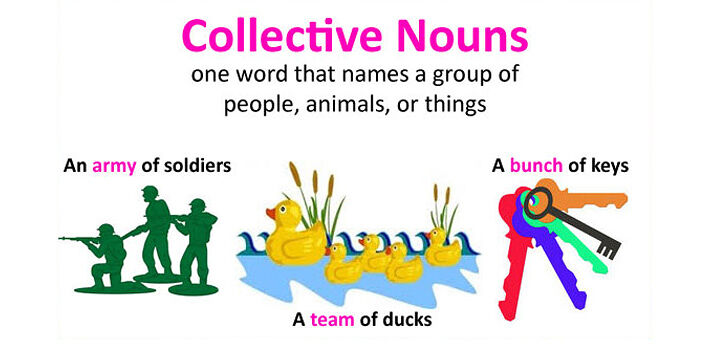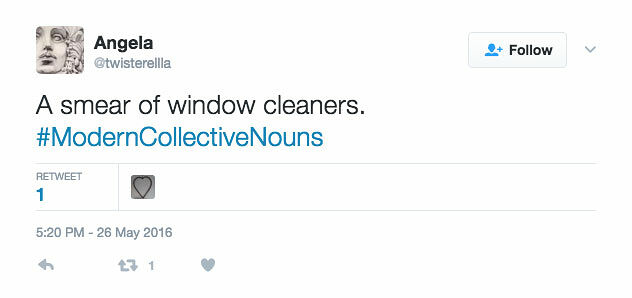Collective Nouns: Give Your Vocabulary An Update With These Hilarious Modern 'Inception Of Nouns'
If you like your collective nouns here are some pretty strange and highly amusing classic examples to be found if you know where to look, like a murder of crows for example. Or an exaltation of larks, a business of ferrets, and a blessing of unicorns. All perfectly entertaining, but slightly dated. But with the advent of new technologies and all the emerging new ways of interacting and socializing perhaps collective nouns is in need of an update.
And perhaps the names for those new modern versions, lets call them Collective Nouns 2.0 if you will, need to be crowdsourced on Twitter. Some of the old ones sound like they already have, to be honest.
Well, that's what happened anyway when a hashtag #ModernCollectiveNouns began trending (again) and people jumped on board. People who were only too eager to add add to the richness of the English language, or just do anything other than actually focus on their work.
Obviously this being Twitter people were more concerned with being amusing than they were with actually coming up with legitimate modern collective nouns. But that's fine, because in the humor and absurdness some of them are actually pretty useful. And, as mentioned, some of the collective nouns we have now sound pretty bizarre anyway, so they're in good company.
So Just What Are Collective Nouns?

If by chance you've read this far, nodding your head as if you understand, but have no idea what we are talking about then before we go further here is the definitive explanation from website EnglishLeap.com on what a Collective Noun actually is:
Collective noun is the name we give to a group of nouns to refer to them as one entity. The most common method of doing this is by using words like group or bunch that can be applicable to most of the nouns in the language today. But there are some specific names given for certain groups of nouns to make things more interesting and funny.
Now, these collective nouns are not based in scientific thought or fact. Most of them come from the poetry and imagination of early to late Medieval English times e.g. - an eloquence of lawyers – Eloquence itself is defined as fine persuasion in speaking or writing, so this particular collective noun is a comment on the profession of lawyers while being their collective noun as well.
The same goes for the collective nouns we find for animals; the names arose from 15th century French and English hunting traditions, where hunting was common and names and terms were given to all aspects of the sport. These names were called Terms of Venery and it had become a tradition of the court to keep extending the list and by the 1500s the list was up-to 165 items long.
Now you are up to speed on what it all means you can share your new-found knowledge with your friends and bore them to death with your superior intellect. Just don't blame us if they assault you and lock you in a dark cupboard. So, for the modern collective nouns we got phrases like "an Irony of Hipsters" which has quite a ring to it. "Look out!" you could warn a friend, "There's an irony of hipsters about to descend on this party and play horribly obscure music. Time to drop that LSD we've been saving."
Others, while sounding great, might not get the chance to be used quite as often like "a trending of hashtags" for instance. But you could start calling groups of teens with selfie sticks a "narcissus of selfie sticks."
One thing they do all have in common though is that they are very, very amusing. Take a look at some below, and head to #ModernCollectiveNouns for many more.

